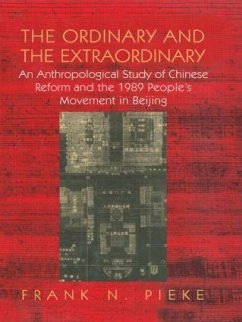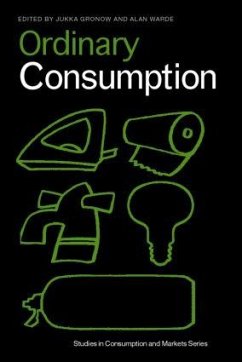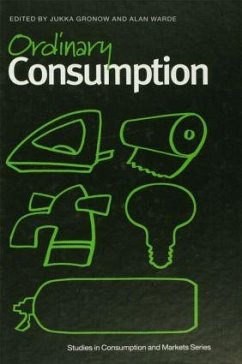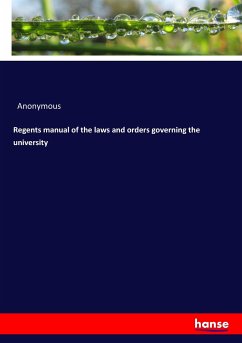
Orders of Ordinary Action
Respecifying Sociological Knowledge
Herausgeber: Francis, David
Versandkostenfrei!
Versandfertig in 1-2 Wochen
177,99 €
inkl. MwSt.
Weitere Ausgaben:

PAYBACK Punkte
89 °P sammeln!
Presenting original research studies by leading scholars in the field, Orders of Ordinary Action considers how ethnomethodology provides for an 'alternate' sociology by respecifying sociological phenomena as locally accomplished members' activities. Following an introduction by the editors and a seminal statement of ethnomethodology's analytic stance by its founder, Harold Garfinkel, the book then comprises two parts. The first introduces studies of practical action and organization, whilst the second provides studies of practical reasoning and situated logic in various settings. By organizing...
Presenting original research studies by leading scholars in the field, Orders of Ordinary Action considers how ethnomethodology provides for an 'alternate' sociology by respecifying sociological phenomena as locally accomplished members' activities. Following an introduction by the editors and a seminal statement of ethnomethodology's analytic stance by its founder, Harold Garfinkel, the book then comprises two parts. The first introduces studies of practical action and organization, whilst the second provides studies of practical reasoning and situated logic in various settings. By organizing the book in this way, the collection demonstrates the relevance of ethnomethodological investigations to established topics and issues and indicates the contribution that ethnomethodology can make to the understanding of human action in any and all social contexts. Both individually and collectively, these contributions illustrate how taking an ethnomethodological approach opens up for investigation phenomena that are taken for granted in conventional sociological theorizing.














